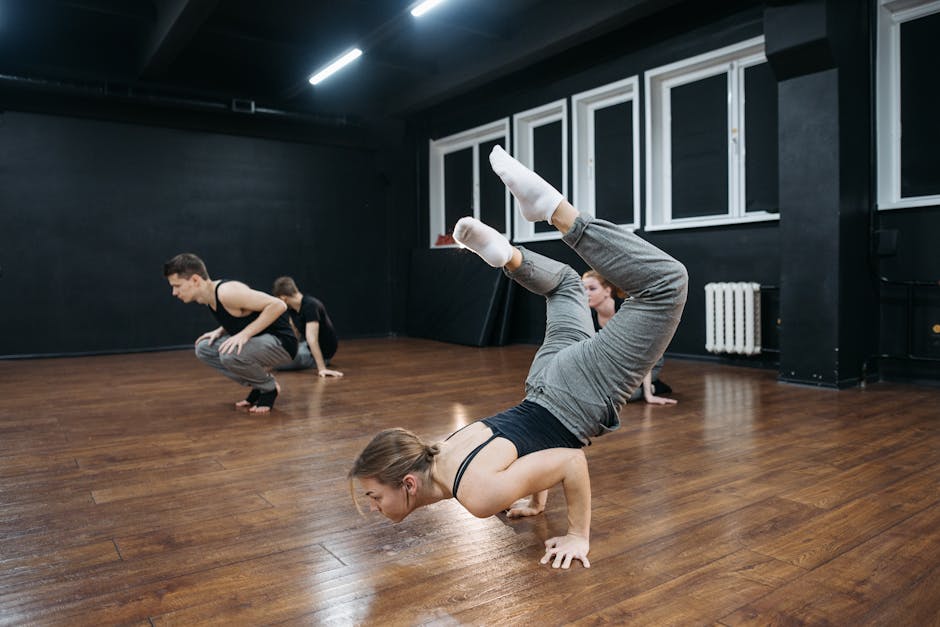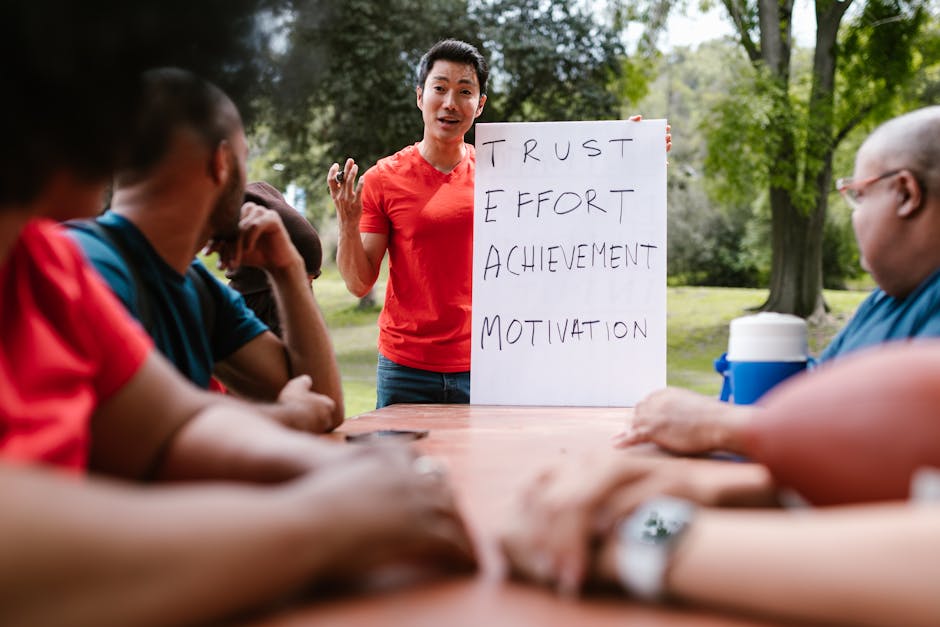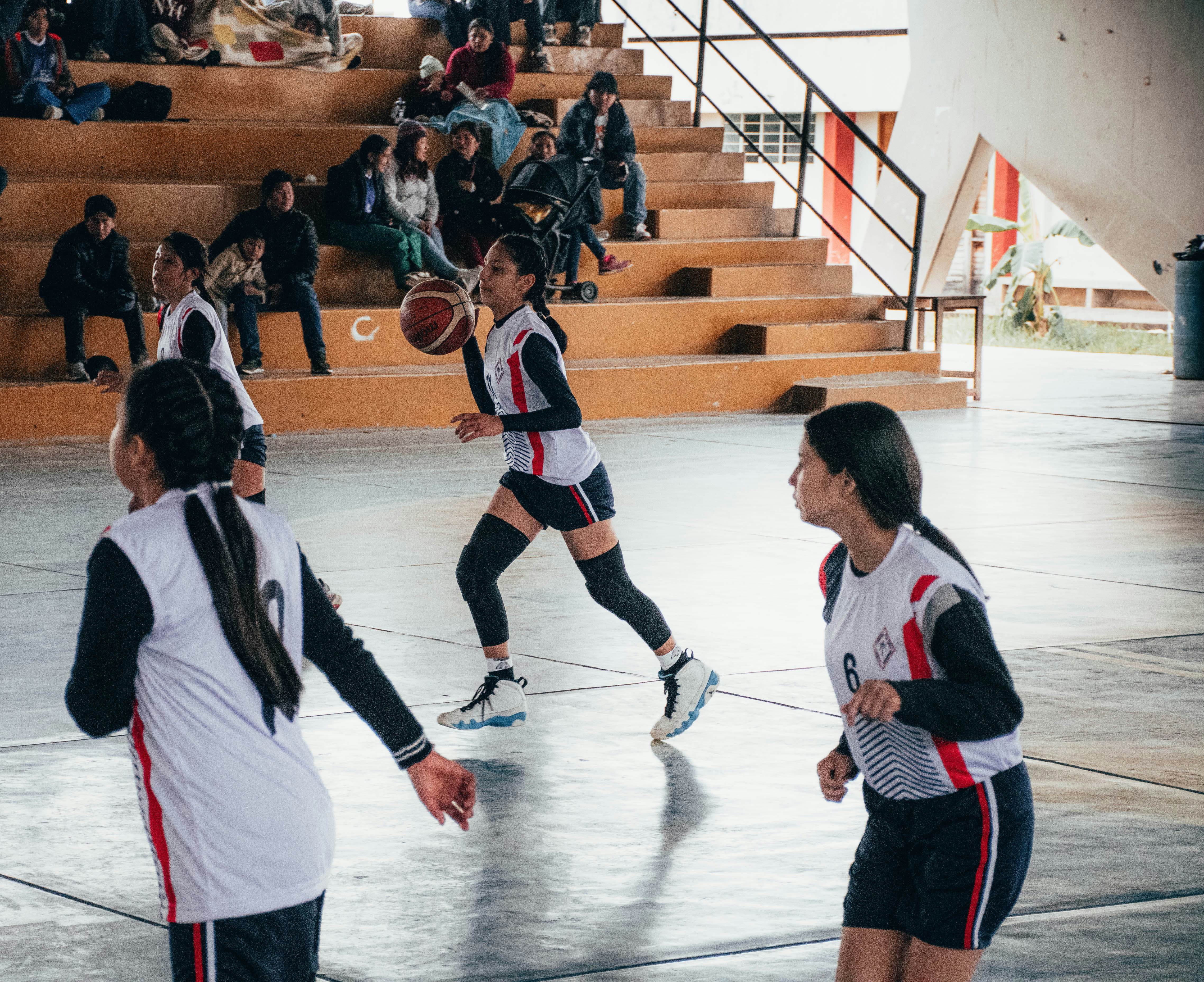Voices from the Sidelines: How Team Psychologists Elevate Performance
In today's cutthroat world of sports, the battle for victory goes beyond physical prowess. Athletes face challenges not only from their opponents but also from their mental landscape, and that’s where the crucial role of team psychologists comes into play. Their insights and strategies are enhancing player performance, fostering team dynamics, and building mental resilience in high-stakes environments. This article dives deep into the innovative integration of sports psychologists within teams, revealing how their contributions are reshaping athlete support, wellness, game strategies, and ultimately, the outcomes of competitions.
The Changing Landscape of Sports Psychology

Traditionally, sports psychology was often overlooked or relegated to the fringes of athletic training. Once considered merely a supplementary resource, it has transformed into an integral part of team dynamics and athlete development. The importance of mental fitness has gained traction in recent years, propelled by research highlighting the relationship between mental health and athletic performance.
A study published by the Harvard Business Review indicated that athletes who prioritize mental health can significantly enhance their performance levels. The understanding is clear: winning is not solely about physical ability; it’s about mental tenacity. Thus, team psychologists are now key players on the sidelines, utilizing mental skills training, cognitive behavior strategies, and emotional support systems to boost athletes' overall resilience.
The Core Functions of Team Psychologists

One of the essential roles team psychologists play is to help athletes develop coping strategies for stress and pressure during competitions. They provide mental skills training that includes visualization techniques, self-talk, and focus strategies that prepare athletes for high-pressure situations. This training ensures that when the game is on the line, athletes can rely on more than just muscle memory—they have mental fortitude as well.
Furthermore, team psychologists are instrumental in fostering positive team dynamics. Their work often involves conflict resolution, promoting open communication, and building trust among players and coaching staff. By creating an environment where athletes feel respected and supported, psychologists can significantly contribute to the overall morale of the team.
Case Studies: Success Stories

The integration of psychologists within sports teams isn’t just a theoretical framework; there are numerous real-world examples that illustrate its effectiveness. Take the case of the National Football League (NFL) teams that have increasingly begun to hire sports psychologists, resulting in improved player efficiency on the field.
Consider the recent analysis of the Seattle Seahawks, who attribute their Super Bowl victory in 2014 to a holistic approach that included hiring a team psychologist. Players engaged in regular mental conditioning sessions that not only improved individual performance but also solidified team cohesion. This case indicates how a mental edge can make a tangible difference in high-stakes situations.
Another instance is the NBA's San Antonio Spurs, which have integrated psychology into their training regimen for years. Their team psychologist works closely with players to address anxiety, build confidence, and promote a shared vision among team members. The results have been consistent: the Spurs have maintained one of the best records in the league over the last decade, showcasing how mental health can translate into performance success.
Game Strategies Influenced by Psychology

The insights provided by team psychologists influence practice strategies and game day performances. For instance, players trained in mindfulness and mental rehearsal techniques can respond more effectively to in-game dynamics, enabling them to make split-second decisions under pressure.
Research has demonstrated that cognitive-behavioral strategies—often championed by psychologists—can improve athletes' resilience and lead to better performance outcomes. The phenomenon of "flow," a psychological state of deep focus and engagement, is more easily attained when athletes apply techniques taught by sports psychologists, indicating a direct connection between mental health training and successful strategy execution.
Mental Resilience: A Game Changer

Mental resilience is an athlete's ability to bounce back from failures and maintain focus under pressure. Team psychologists implement resilience training through simulated high-pressure scenarios, equipping athletes with tools to handle adversity.
For example, the mental resilience framework used by Olympic athletes emphasizes persistence and the ability to recover quickly from setbacks. This training not only prepares athletes for the inevitable challenges they will face but builds a solid foundation for long-term growth in and out of sports.
Athletes who have undergone such training often demonstrate an improved ability to handle stress, leading to better performance. A notable study revealed that athletes trained by psychologists were able to recover from adrenaline spikes more efficiently, which directly contributed to their competitiveness during vital moments of the game.
The Role of Collaborative Approach

The collaboration between team psychologists and coaching staff is vital in successfully implementing psychological strategies. Coaches who adopt an open-minded approach, valuing input from psychologists, cultivate a culture that prioritizes mental wellness. This collaboration helps in tailoring training regimens and development plans that consider both the mental and physical capacities of the athletes.
An excellent example of such collaboration is seen in international soccer clubs, where coaches and sports psychologists often design training sessions that combine physical drills with mental wellness practices. This holistic approach not only improved player performance but also helped maintain a supportive atmosphere, critical for athlete growth.
Next Steps in Sports Psychology

As the understanding of the interplay between mental health and performance continues to evolve, the expectations for team psychologists will also grow. Here's what we expect in the future:
-
Increased Integration: More professional teams across various sports will hire dedicated sports psychologists, recognizing the value they bring to performance optimization.
-
Technology Utilization: Technologies like biofeedback and virtual reality are expected to play a more significant role in mental training techniques. For instance, biofeedback devices can measure physiological responses and help athletes practice mindfulness and relaxation techniques effectively.
-
Greater Awareness of Mental Health: As mental health becomes a focal point in sports culture, discussions surrounding mental well-being will increasingly involve players, coaches, and management. This shift can lead to breaking down stigmas and creating an environment where seeking help is both acceptable and encouraged.
Final Thoughts
The evolving role of team psychologists in optimizing athlete performance has redefined the landscape of sports. By prioritizing mental wellness, teams can cultivate a competitive edge that goes beyond physical skills alone. The integration of psychology in sports is not merely a trend; it is a necessary evolution that can lead to sustained success and wellness in the lives of athletes.
As this field continues to develop, we can expect to see even more sophisticated strategies emerge, connecting athlete performance with mental health in more profound ways than ever before. For athletes, coaches, and teams willing to invest in psychological training, the rewards will be both significant and transformative.
If you're curious about how other technologies, such as wearable tech and gamification, are shaping the landscape of sports training, check out our article on the wearable tech revolution or delve into how gamification in sports training is changing the game.



